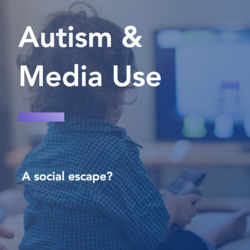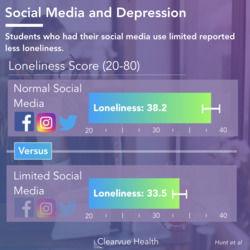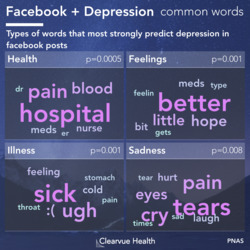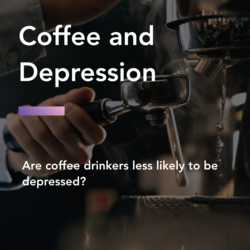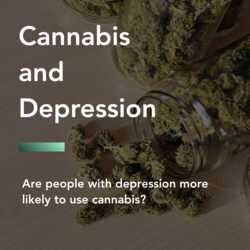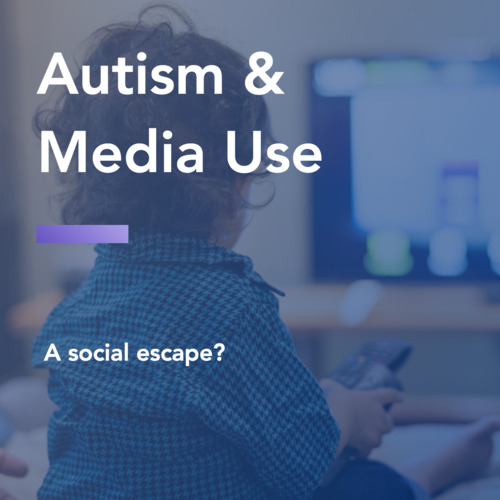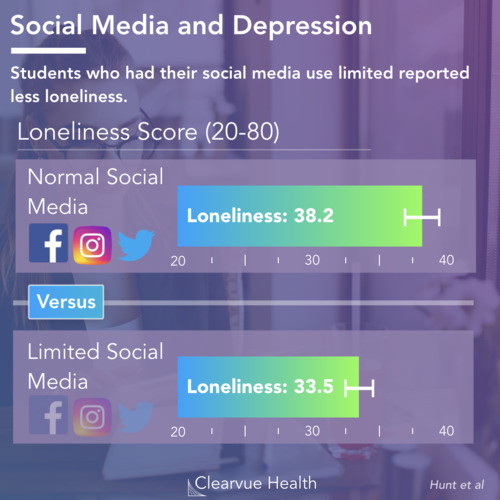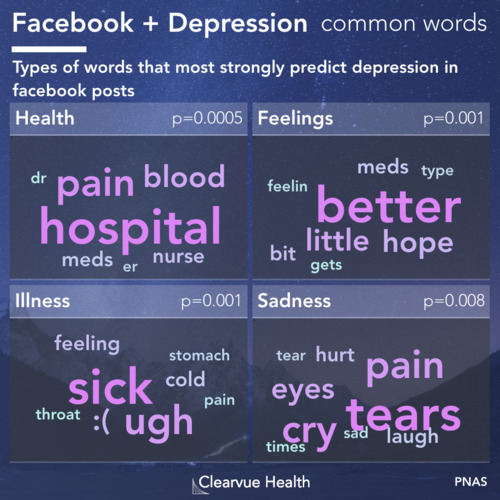Gaming vs Social Media & Depression
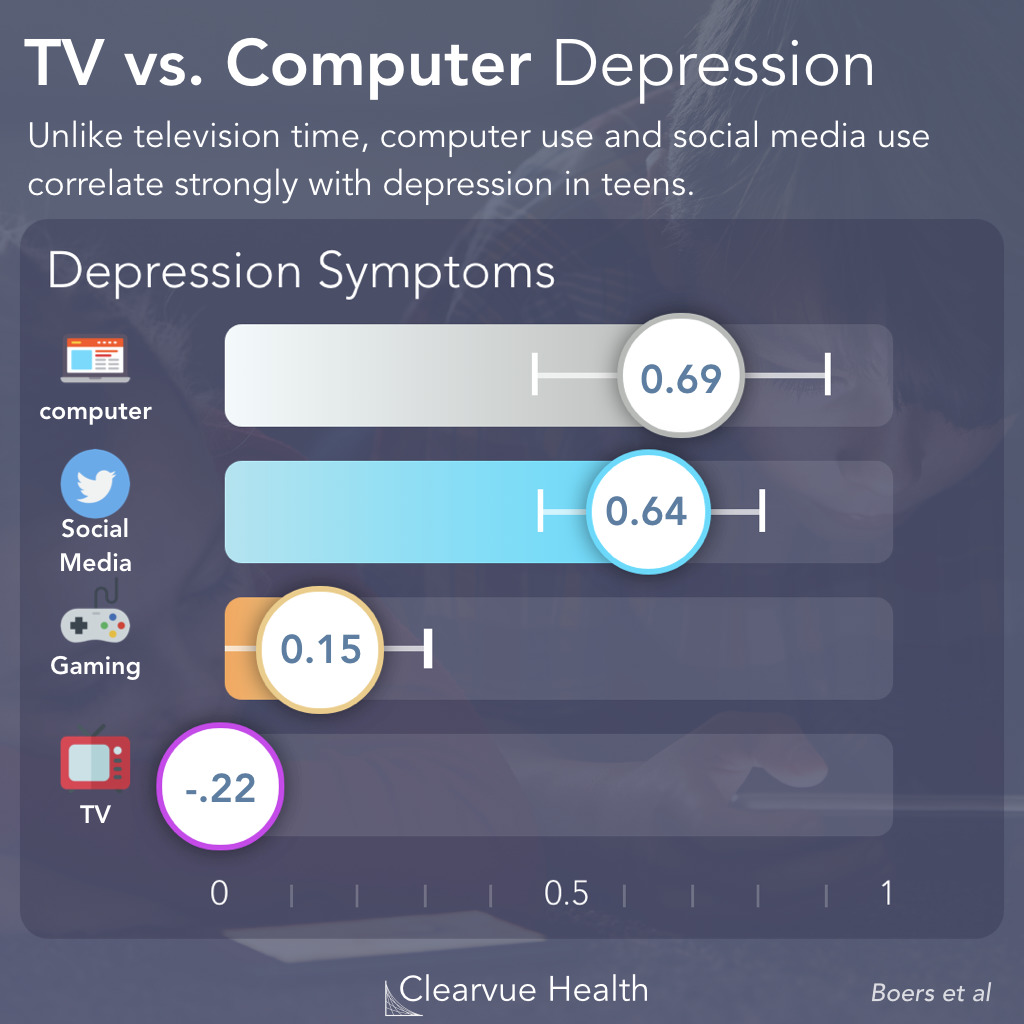
Figure 1: Gaming vs Social Media & Depression. Social Media and Computer use were associated with significantly more depression than video games and watching TV. The numbers above correspond to differences in depression symptoms on a 28 point scale. Bars are scaled to the magnitude of depression symptoms. Longer bars are worse. The data was obtained from 3,826 adolescents with an average age of 12.7 years old. They were followed for four years.
There has been a lot of debate on what is more damaging to teenagers: video games, television, or social media?
No parent likes watching their kid play video games instead of doing homework. Many parents would also prefer their kids to play sports instead of watching television. But, is social media or computer use any better?
A new study shows that social media and computer use may actually be worse than gaming and watching TV, at least in terms of self-esteem and depression symptoms.
Using social media is strongly associated with more depression symptoms. This means that teens who use the most social media also have the most depression symptoms.
Surprisingly, video games and television were not associated with depression symptoms. Neither of these activities had any significant impact on depression.
Source: Association of Screen Time and Depression in Adolescence
More Social Media Use = More Depression
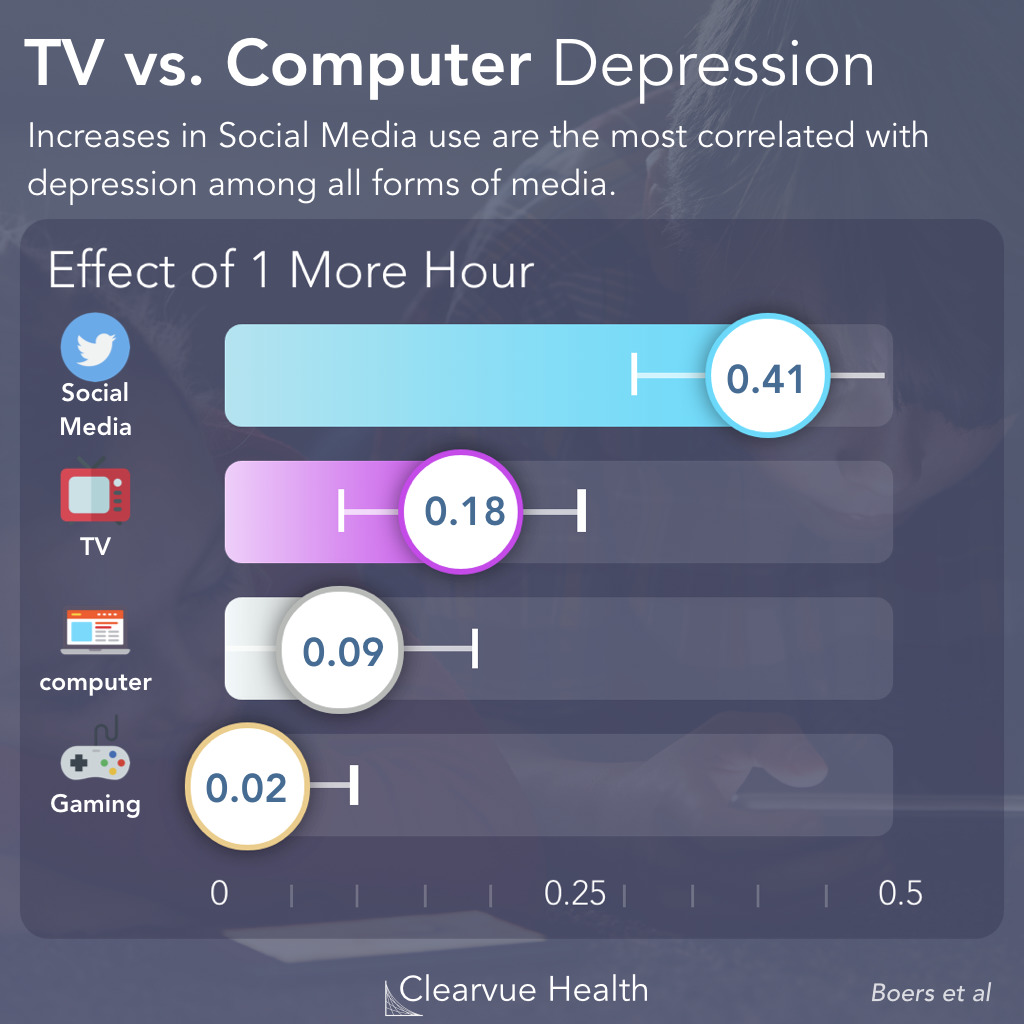
Figure 2: Effect of Increasing Social Media & Gaming Use. An increase in Social Media use is the most correlated with depression among all forms of media. Spending more time on the computer or gaming as a teenager was not associated with changes in depression. The numbers above correspond to differences in depression score on a 28 point scale. Bars are scaled to the magnitude of depression symptoms. Longer bars are worse. The data was obtained from 3,826 adolescents with an average age of 12.7 years old. They were followed for four years.
When a teenager begins watching a lot more television and using a lot more social media, it may be a sign of depression.
Increased social media use over time was most strongly correlated with depression.
However, picking up a new video game habit was not.
Source: Association of Screen Time and Depression in Adolescence
Social Media Decreases Self Esteem
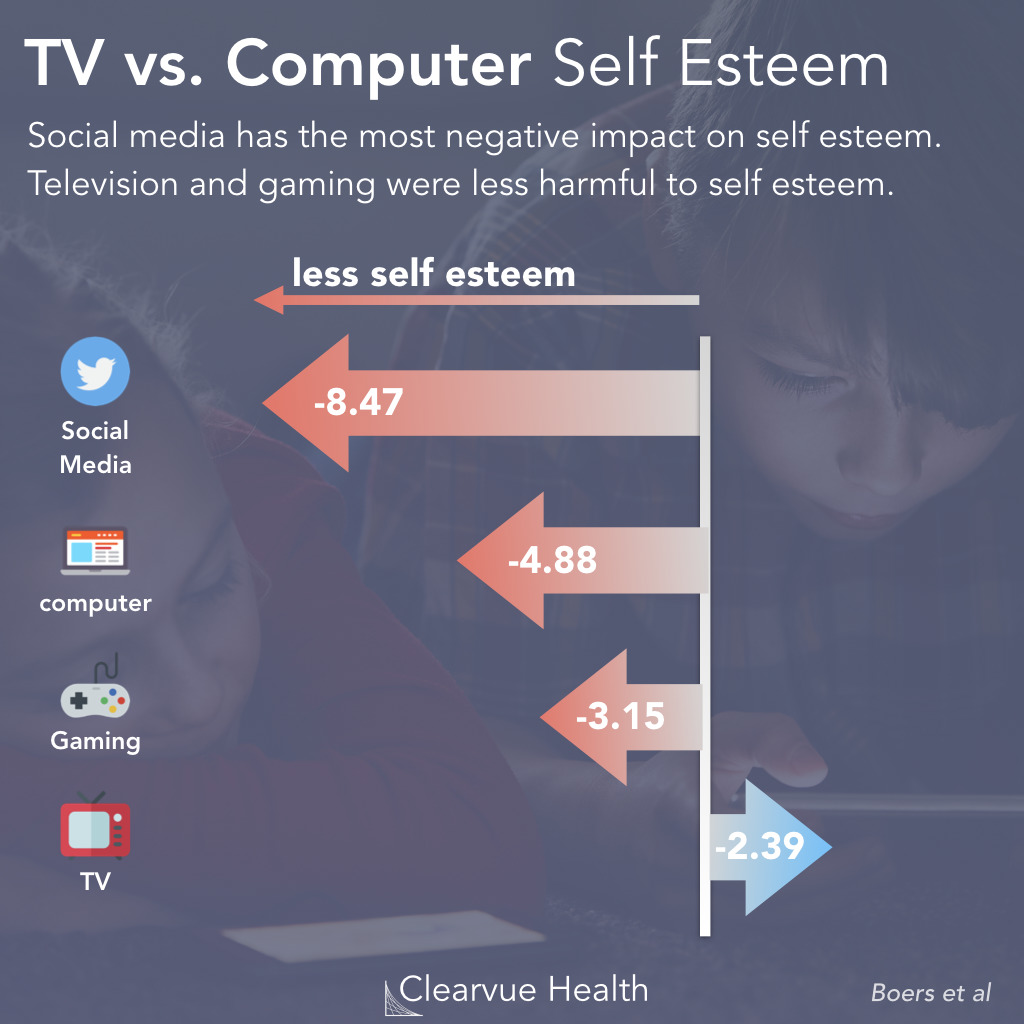
Figure 3: Gaming vs Social Media: Self Esteem. Social media use had the most significant negative impact on self-esteem. Playing video games was relatively better for self-esteem. Each bar is scaled to the relative impact on self-esteem. Red represents a negative impact, blue represents a positive impact. The data was obtained from 3,826 adolescents with an average age of 12.7 years old. They were followed for four years.
There has been a lot of talk about how social media makes people feel worse about themselves. It’s hard not to feel a bit of FOMO when we see vacation photos from exotic places. When our newsfeeds are filled with airbrushed photos of others, it can be hard not to feel a little worse about ourselves.
This data in teens shows that this is a real mental health issue. Teenagers who use the most social media also had the lowest self-esteem.
Meanwhile, watching TV and playing video games had relatively little correlation.
Keys to Health
This research suggests that video games may not be as harmful to teenagers as social media.
Teens are particularly vulnerable to the negative influences of social media.
Unfortunately, social media use is less visible to parents and others than playing Xbox in the living room.
Based on this research, parents and teens should work towards spending less time on social media in general. Gaming, on the other hand, might not be so bad. After all, a collaborative experience on Call of Duty with friends is, at its core, still a fun, collaborative experience.
+
Study Type - This study used a prospective cohort method, which is the most feasible method for this topic. It still carries significant potential for bias, and cannot tell us anything about causation. However, a clinical trial would not practical in this case.
+
Endpoints - Researchers used appropriate endpoints for depression and self-esteem.
+
Sample Size - Researchers used a large enough study to find significant results.
American Academy of Pediatrics
Such sites offer today's youth a portal for entertainment and communication and have grown exponentially in recent years. For this reason, it is important that parents become aware of the nature of social media sites, given that not all of them are healthy environments for children and adolescents. Pediatricians are in a unique position to help families understand these sites and to encourage healthy use and urge parents to monitor for potential problems with cyberbullying, “Facebook depression,” sexting, and exposure to inappropriate content.
UNICEF
Building healthy social media habits is crucial to avoiding potential mental health risks. Usage should be moderate and balanced with real social time with family and friends. Deciding how much is too much inevitably depends on the individual’s age, character traits and the culture they are living in. However, the influences of the content adolescents encounter and the activities they participate in online are more important than actual time spent online.
JMIR Mental Health
Positive interactions, social support, and social connectedness on SNSs were consistently related to lower levels of depression and anxiety, whereas negative interaction and social comparisons on SNSs were related to higher levels of depression and anxiety. SNS use related to less loneliness and greater self-esteem and life satisfaction.
Clearvue Health is not affiliated with above organizations. The information above is provided to highlight and link to useful further reading.
Increasing Suicides in Teens
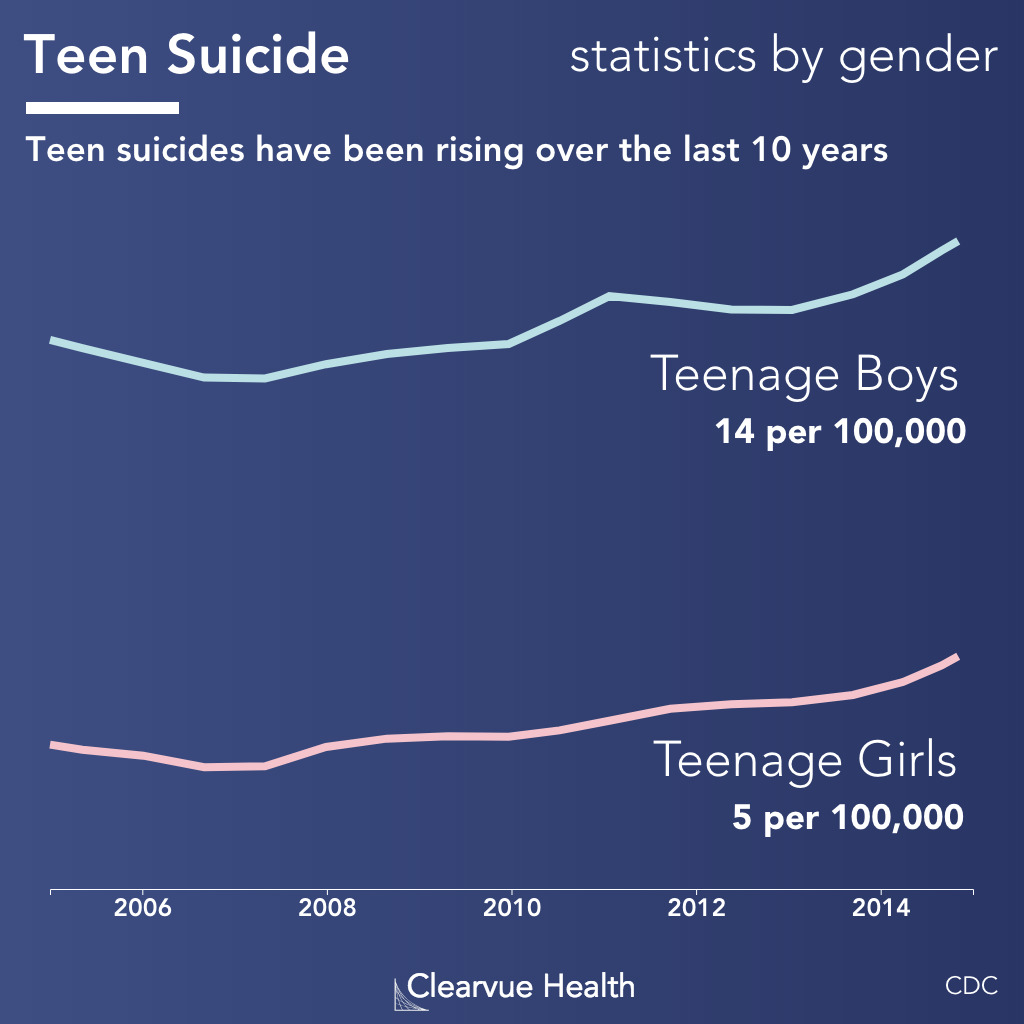
This data is particularly relevant in the context of increasing suicides in teenagers.
There has been the uptick in the number of teen suicide recently, and experts are baffled at the reasons.
The dramatic increase in social media use suggests a possible cause.
Signs of Suicide Risk in Teens
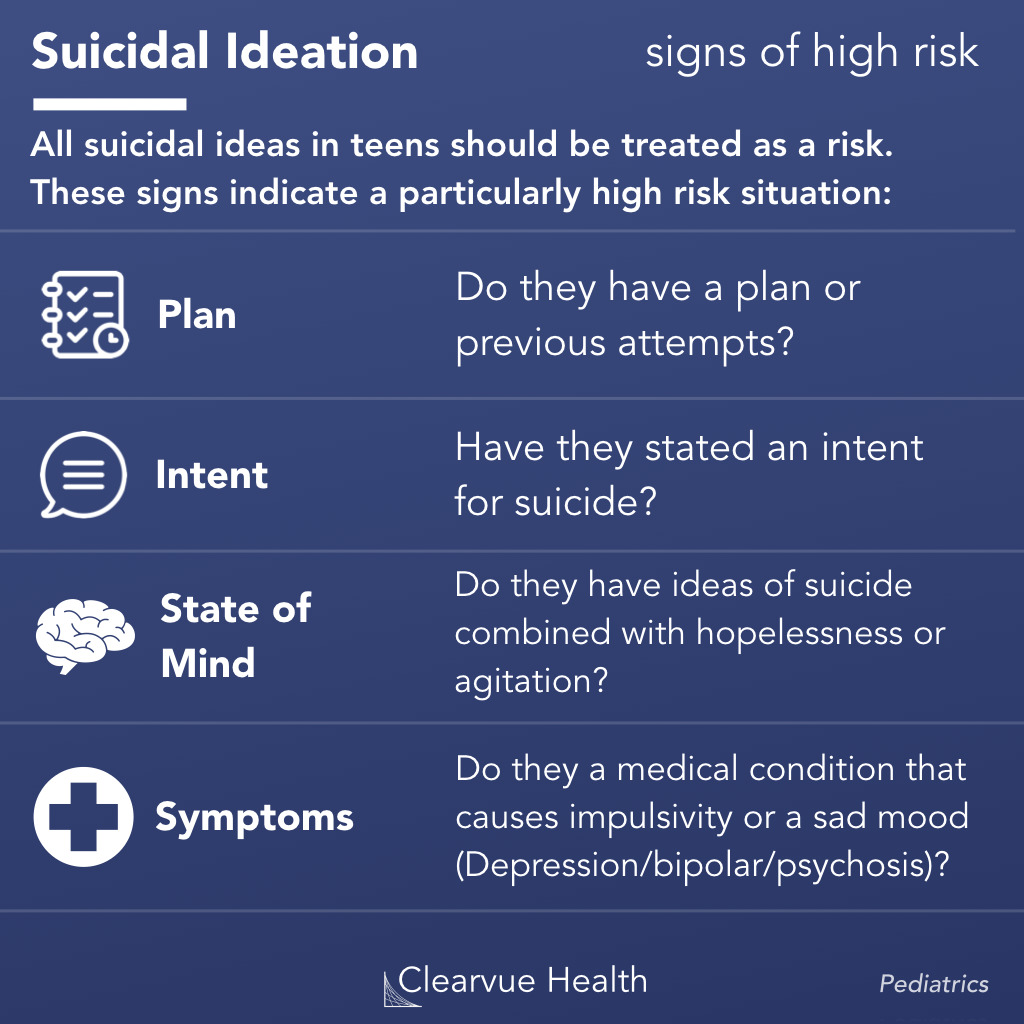
In order to provide a better understanding of suicide and the risks behind it, we’ve summarized several known factors that indicate a particularly high risk for teens with suicidal thoughts. All suicidal thoughts should be treated seriously, there is no such thing as a low risk suicidal thought.
These were based off of a paper published by the American Academy of Pediatrics, the leading body of pediatricians in the United States.
Source: Suicide and Suicide Attempts in Adolescents






